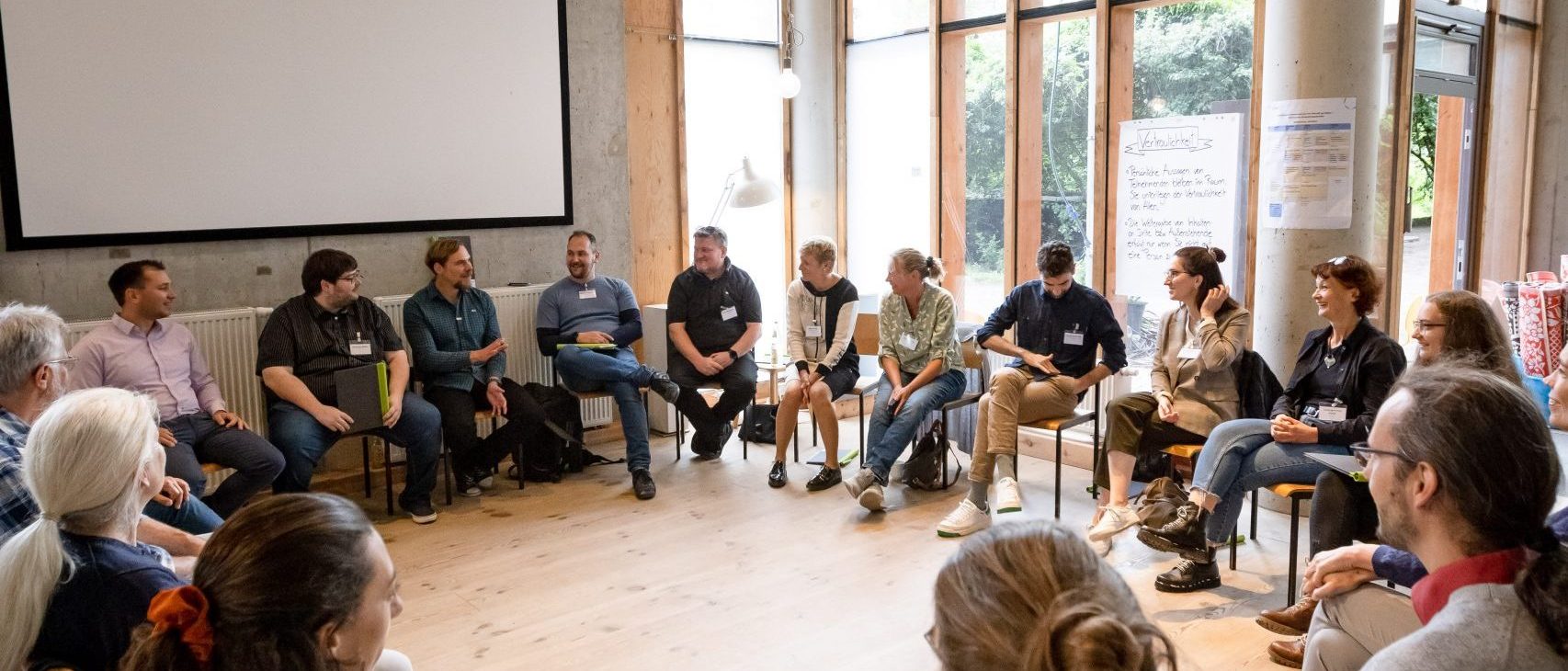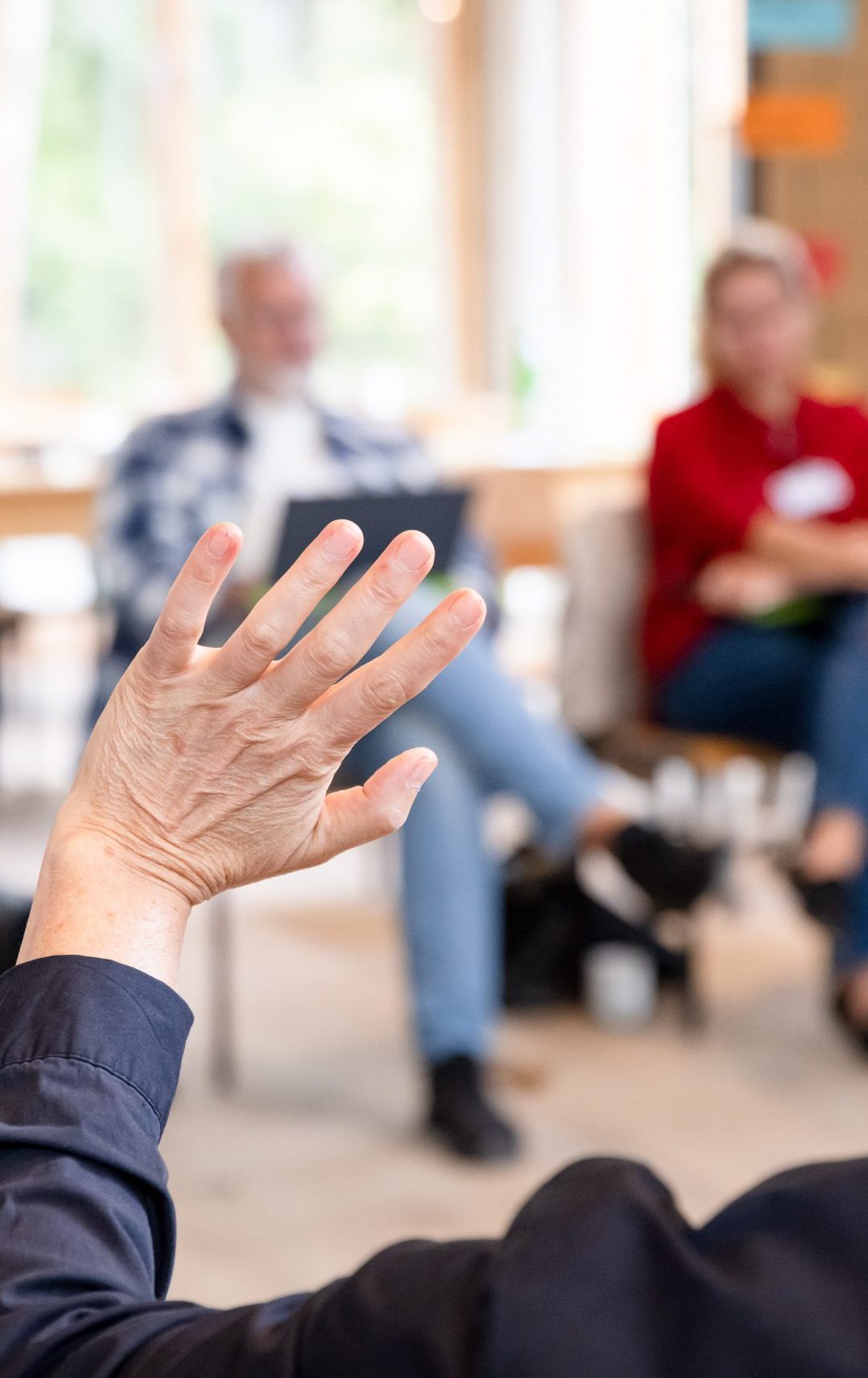We bring together politics, administration, civil society, and local businesses in Municipal Development Councils, cultivating collaborative solutions for complex societal challenges. Our conviction: Inclusive and sustainable development is best achieved when all interest groups enter into dialogue with each other and develop strategies together.
We are currently supporting four German municipalities - the cities Cottbus/Chóśebuz, Duisburg and Frankfurt an der Oder-Słubice and the Joint municipality of Meinersen - in the implementation of Municipal Development Councils. In six other municipalities concrete recommendations for action have already been developed and implemented.

What strategies can be employed to achieve a just green transition? How do we tackle the repercussions of the pandemic and navigate migration and refugee movements? The pressing challenges we face require creative and inclusive strategies for sustainable development. In this endeavor, democratic structures must not only address societal polarization but also underpin the success of these transformative processes.
Municipalities play a pivotal role in this context. They are directly confronted with these issues, because this is where different interests and needs become tangible as conflicts. Municipalities therefore need strategies that are sustainable today and also meet the needs of future generations.
To support them in this task, we have developed municipal development councils. The approach is based on the research and many years of practical experience of Prof. Dr. Gesine Schwanwhich introduced the concept for the first time in Politik trotz Globalisierung. outlined. In close collaboration with our multidisciplinary team, the approach was further developed and put into practice.

A municipal development council (KEB) is a format for municipal citizen participation. It is commissioned by local politicians to work on a specific issue affecting the municipality. Around 30 people representing local politics and administration, as well as the local economy and civil society, are selected as advisory board members. They are approached if they have specialist expertise, are involved in or affected by the topic or can represent the interests of a relevant or marginalised social group. Over the course of a year, they come together in four full-day meetings.
The approach is based on the conviction that municipal development works most sustainably when all key interest groups work together. Professional process support and moderation by the Berlin Governance Platform creates a framework that enables everyone to participate on an equal footing and at eye level.
A recommendation paper is produced in a joint effort. Depending on the mandate, this includes visions, guidelines and, if necessary, concrete measures. This is then presented to the elected municipal or city council for evaluation and a decision on implementation.

Awarded the "Bewährt vor Ort" seal of approval for municipal innovation by the German Association of Towns and Municipalities and ProjectTogether.